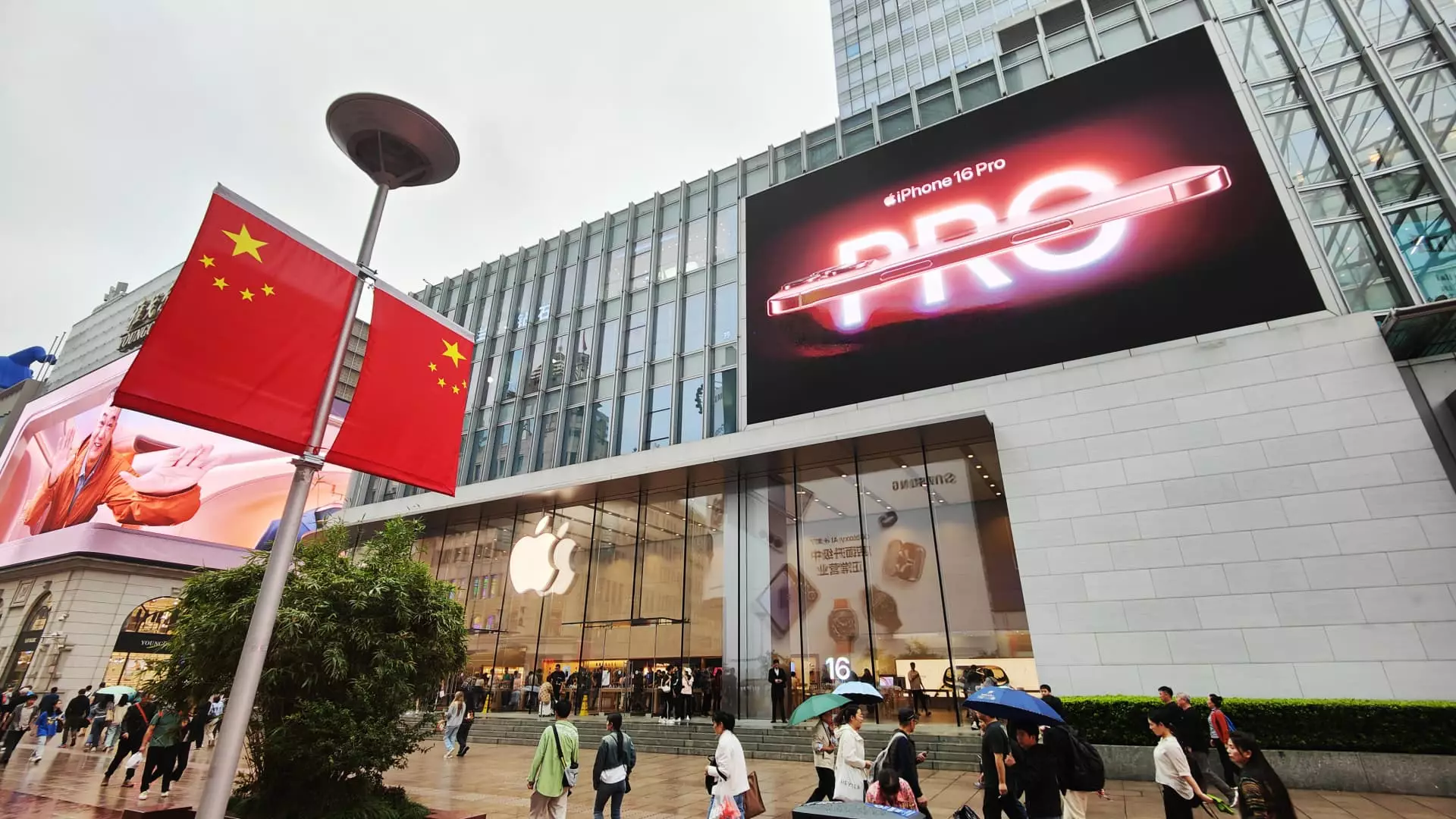Recent data indicates a dramatic decline in foreign smartphone shipments within the Chinese market, signaling a challenging landscape for international brands, particularly Apple. In November, foreign mobile shipments plummeted to just 3.04 million units, marking a staggering 47.4% drop compared to the same period in the previous year, and an even more pronounced 51% decrease from October 2022. This sharp decline underscores the growing intensity of competition faced by foreign companies as they navigate the complex and rapidly evolving Chinese market landscape.
As the leading international smartphone vendor in China, Apple finds itself at a critical juncture. While it has historically enjoyed a strong foothold, the latest figures reveal that the company is increasingly vulnerable to local incumbents. Although specific brand figures are not disclosed by the China Academy of Information and Communications Technology (CAICT), Apple undoubtedly commands a considerable share of foreign shipments. However, it faces mounting pressure from local brands, notably Huawei, which has made significant strides in the high-end smartphone sector following U.S. sanctions that previously hampered its operations.
Huawei’s resurgence, particularly towards the end of 2023, has been characterized by aggressive product launches that resonate well with Chinese consumers. This rising domestic competition has arguably accelerated Apple’s challenges in maintaining its market share, as consumer preferences shift in favor of homegrown brands that offer similar or superior technological advancements at competitive price points.
Apple’s strategy to reclaim momentum within the Chinese marketplace hinges on its recent iPhone 16 series, introduced in September. The company has promised a range of cutting-edge artificial intelligence features through its Apple Intelligence software, which many anticipated would entice tech-savvy consumers. However, regulatory hurdles surrounding AI implementation in China pose significant obstacles. Currently, the Apple Intelligence platform is unavailable in the country, providing an opening for domestic competitors to showcase their AI capabilities, which are actively integrated into their devices and readily accessible.
The competitive landscape accentuates the importance of adapting to local market conditions swiftly. Companies like Huawei are not just focusing on hardware; they emphasize their software capabilities, which are especially compelling during a time when consumers desire more interaction and personalization from their devices.
Apple’s CEO, Tim Cook, has recognized the criticality of the Chinese market, evident from his multiple visits aimed at fortifying partnerships that could enhance the Apple Intelligence framework. In an attempt to revitalize interest in the iPhone 16, Apple plans to implement discounts as part of its promotional strategy during the upcoming Lunar New Year festivities. This tactical move could potentially sway consumer sentiment but raises questions about pricing strategies and perceived value in a market increasingly dominated by innovative local alternatives.
With the landscape for foreign mobile brands shifting dramatically, Apple must navigate the complexities of local competition, regulatory constraints, and evolving consumer expectations to reclaim its leading position in China’s smartphone ecosystem. The struggle to adapt and innovate will be crucial as the company seeks to maintain its relevance in this rapidly transforming market.


Leave a Reply